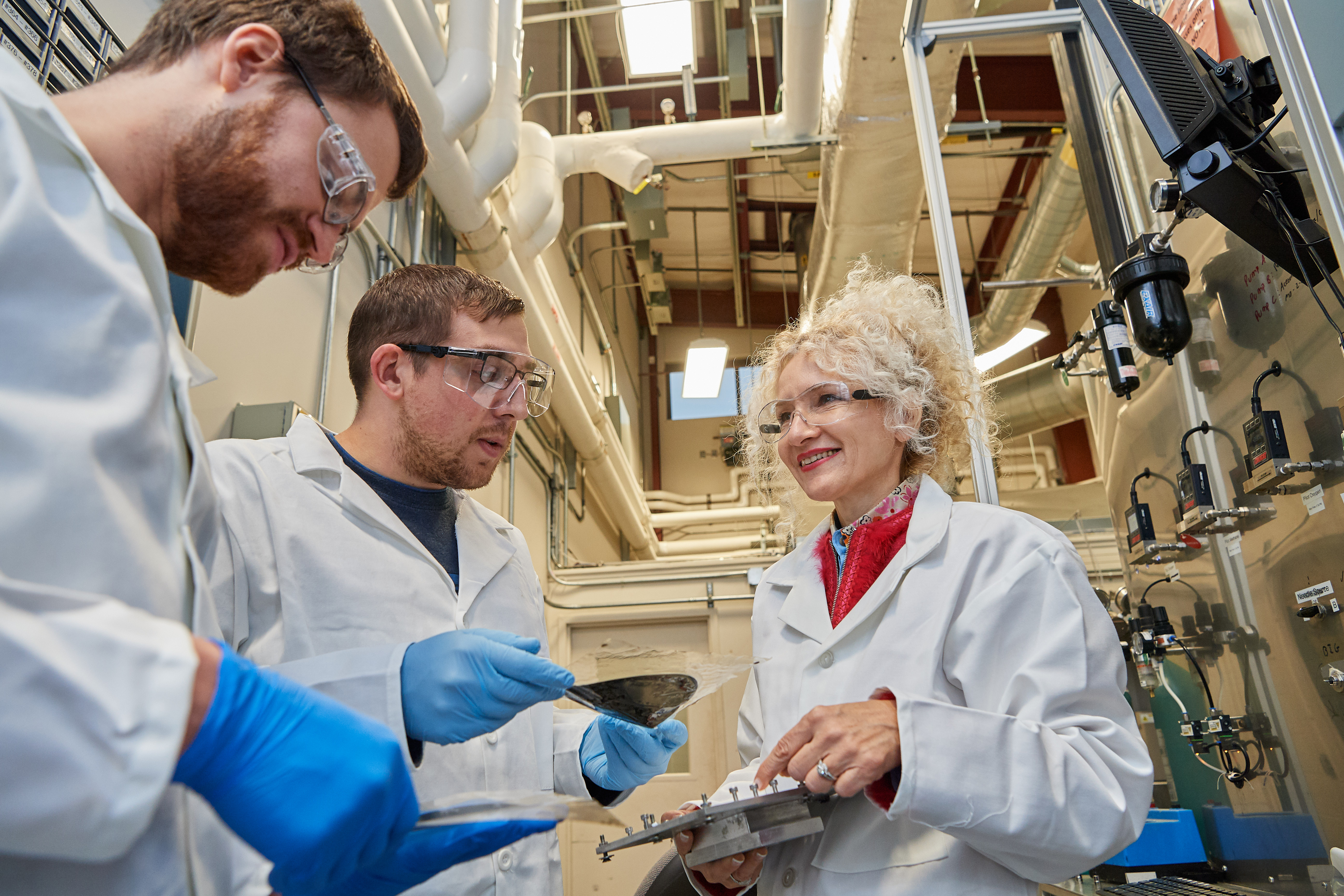Vice President for Research, Innovation and Entrepreneurship Radenka Maric has been named a 2019 Fellow of the American Association for the Advancement of Science (AAAS). Maric is also CT Clean Energy Fund Professor of Sustainable Energy in the Department of Chemical and Biomolecular Engineering and the Department of Materials Science and Engineering.
AAAS, publisher of the journal Science, is the world’s largest general scientific society. AAAS was founded in 1848 and includes more than 250 affiliated societies and academies of science, serving 10 million individuals. The organization’s annual tradition of recognizing leading scientists for their efforts to advance science and its applications dates to 1874. Since then, AAAS has honored distinguished scientists such as astronomer Maria Mitchell, elected a Fellow in 1875; inventor Thomas Edison (1878); chemist Linus Pauling (1939); and computer scientist Grace Hopper (1963). Four of the 2018 Nobel Prize laureates – James Allison, Arthur Ashkin, Frances Arnold, and George Smith – are AAAS elected Fellows.
This year, two of the 443 AAAS honorees are from Connecticut: David Post, Yale professor of ecology and evolutionary biology and UConn professor Radenka Maric. Maric has been honored for distinguished contributions to the field of nano-catalysis for clean energy, particularly for pioneering novel materials and synthesis approaches to achieve an optimized electrochemical interface.
“I am truly honored to represent UConn as an AAAS Fellow,” says Maric. “It is a privilege to serve the UConn community, as I feel this institution is my home. I am energized everyday by my colleagues, gifted faculty, and talented students who make UConn a special place for education, creative work and research, sustainability, and global perspectives of inclusion and the exchange of ideas.”
Maric came to UConn in 2010 after an international career working in industry and national labs. She is the recipient of many awards and honors from the national and international research community for both preeminence in her field and dedication to educating future generations of scientists. Some of these honors include election into the Connecticut Academy of Science and Engineering in 2012, being named the 2015 Woman of Innovation in the Research category by the Connecticut Technology Council, and selection as a Fulbright chair professor in Italy in 2016-2017.
The hallmark of Maric’s research is the efficient and sustainable use of precious metals in demanding reactions, such as proton exchange fuel cells, alkaline fuel cells, water-gas shift reforming reactions, solid oxide fuel cells, and electrochemical sensors. Maric has been awarded more than $40 million in research funding, six issued patents, along with 11 published patent disclosures. She has also published more than 300 articles in refereed journals and conference proceedings, two books under preparation, and 21 book chapters or invited review articles in major journals.
While Maric is currently serving as a member of UConn’s senior leadership, she maintains an active lab and continues to mentor students from UConn and beyond. In collaboration with a team from Technion University in Israel, Maric is developing new transition metal oxide catalysts using Reactive Spray Deposition Technology (RSDT) that could signal major improvements in alkaline exchange membrane fuel cell (AEMFC) performance. In recent years, AEMFCs have received significant attention for their potential to replace other catalysts and acid-tolerant hardware that are currently used in proton exchange membrane fuel cells. With Maric’s RSDT technology, the research team hopes to overcome challenges to fully exploit AEMFCs for sustainable energy production.
As a Fulbright chair professor at Politecnico di Milano in Italy, which is ranked in the top 20 technical universities in the world, Maric taught, conducted research, and supervised two students who are now pursuing doctorates in the U.S. During that time, Maric collaborated with colleagues from Politechnico di Milano and UConn to develop a novel structure and membrane electrode assembly method. The work resulted in four joint papers, one of which received a European Commissioner top award and led to an industrial collaboration with Eldor Company.
Maric is also dedicated to leveling the playing field in education and encouraging diversity. As the first woman to earn a doctoral degree from the School of Engineering at Kyoto University – Japan’s most prestigious university – Maric overcame gender stereotypes and language barriers in order to succeed. In 2019, she founded the Maric Graduate Fellowship to support graduate students in need across all UConn’s schools and colleges.
“As educators and scientists, it’s our duty and privilege to produce creative problem solvers, able to integrate passion and curiosity, seek out and create new knowledge, and engage as ethical world citizens,” says Maric. “I have no doubt that many of them will join me one day as future AAAS Fellows.”



